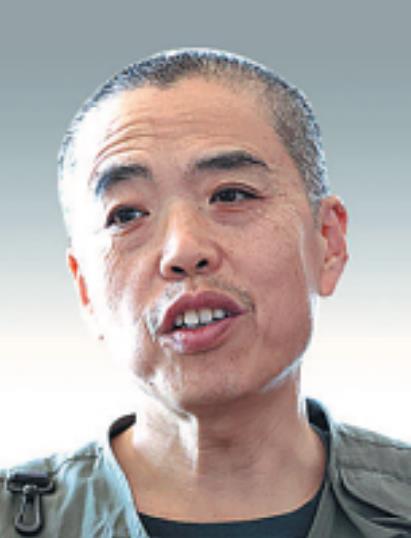Orthopedist digs deep into his pocket for conservation work, rescues


If it were not for his father's interference, Yang Xiaodong would have pursued a major related to animals when he entered university in 1992.
However, he ended up majoring in medical science and became an orthopedist at the People's Hospital in Shanxi province's Heshun, his home county, after graduating.
Nevertheless, the 56-year-old's enthusiasm for animals has remained unwavering. Over the past two decades, he has dedicated a significant amount of his free time and personal funds to wildlife conservation.
He is both deputy head of the hospital and chairman of the Heshun Ecological Conservation Society, founded in 2018.
Yang's interest in animals began in his childhood. As the youngest of five siblings and the only male, he received plenty of affection and his family was remarkably tolerant of him keeping an array of pets.
When he visited Beijing for a study tour in the late 1990s, he heard about the Friends of Nature, an environmental NGO established in 1993, and one of the first organizations of its kind in China.
He soon visited the NGO and applied to become a member.
Upon returning to Heshun, he literally spread the word about wildlife conservation with the help of a motorbike provided by the organization. As the NGO expanded into other sectors, including environmental protection and climate change, Yang grew distant from it. "I only like wildlife conservation," he said.
In 1999, he founded a wildlife protection organization in the county, which nine years later evolved into the Heshun Ecological Conservation Society. The society devoted most of its energy and resources toward rescuing injured wild animals. Since its establishment, it has rescued more than 500 wild animals.
The rescue work has cost Yang a lot of time and money. "I couldn't figure out how much money I have spent," he said.
In 2022 Jinzhong city, where Heshun is located, allocated the society 100,000 yuan ($13,790) to support its wildlife conservation efforts and then 50,000 yuan the next year. It was one of the few opportunities for the association to receive financial support.
"The money was not enough to make ends meet for the society (during the two years)," Yang said.
He also received 80,000 yuan from the Society of Entrepreneurs and Ecology, a Beijing-based NGO, to build a base for wildlife rescue in 2018. However, he ended up having to contribute 5,000 yuan from his own funds to complete the project.
Seven years ago, he managed to heal an injured great bustard after more than 10 days of treatment and care. After hearing from conservationist friends that a flock of the migratory birds was resting in Datong, a city about 450 kilometers away from Heshun in northern Shanxi, he drove to the location to release the big bird.
In 2018, he took a black stork with a broken wing into his care. In just six months, he spent over 6,000 yuan on food for the stork. He eventually persuaded a zoo in Taiyuan, Shanxi, to take in the bird, after finding it was too expensive to keep.
Yang is determined to continue his wildlife conservation work, despite it being costly. He said he leads a simple lifestyle and has modest requirements when it comes to clothing and food.
"Many people have criticized me for spending excessively on wildlife conservation. However, I believe that my quality of life has not been compromised as a result," he said.
- White rare crab on the tongues of gourmet chef
- Across China: Telemedicine boosts medical services in Northwest China
- Wondrous Xinjiang: Populus euphratica forests attract tourists with autumn charm in southern Xinjiang
- Expats impressed by payment services in Shanghai
- China wishes for safe return of two delayed American astronauts
- 45 years on, MTR to help fast track Greater Bay Area integration: John Lee





































